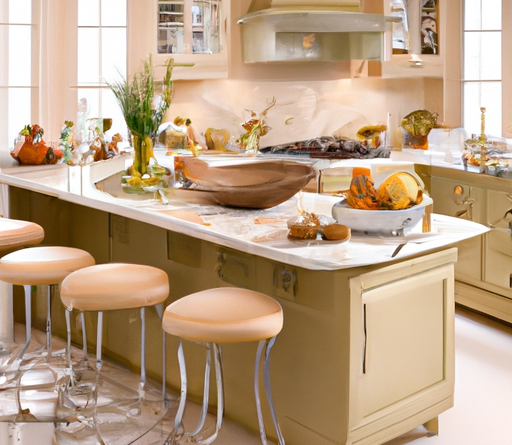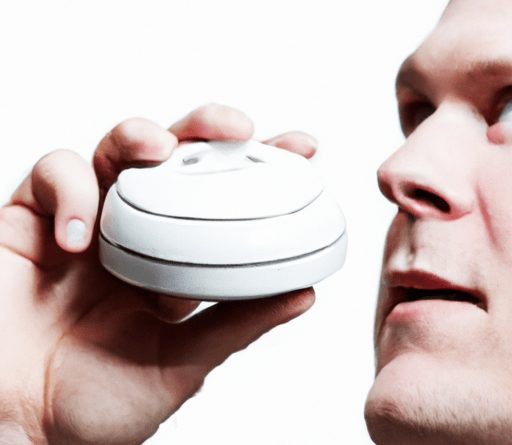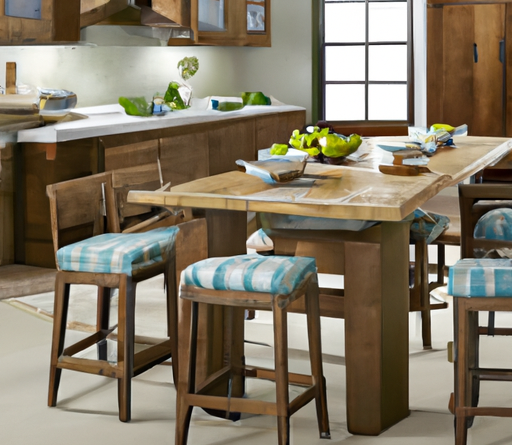Are you looking for practical tips on how to safely store and organize your kitchen chemicals and cleaning supplies? In this article, we will share some useful advice to ensure the safety of your household, prevent accidents, and keep your kitchen clean and tidy. From proper storage containers to smart placement strategies, we’ve got you covered. So, let’s dive in and discover how to effectively manage your kitchen chemicals and cleaning supplies without any hassle!
Choosing the right storage location
Considerations for storage location
When it comes to storing kitchen chemicals and cleaning supplies, it’s crucial to choose the right location. The storage area should be well-ventilated, dry, and away from any sources of heat or moisture. It’s important to keep in mind that certain chemicals can produce toxic fumes when exposed to heat or moisture, so storing them properly is essential for both our safety and the longevity of the products.
Avoid storing chemicals near food
One critical consideration when selecting a storage location is to ensure that chemicals are kept away from food items. This is particularly important in the kitchen, where food preparation occurs. Storing chemicals near food can lead to contamination, making it unsafe for consumption. To avoid any accidental mix-ups, it’s best to designate separate storage areas for food and chemicals.
Keep chemicals away from heat and moisture
Another consideration when choosing a storage location is to ensure that chemicals are kept away from heat and moisture. Heat can cause certain chemicals to degrade or become unstable, increasing the risk of accidents or chemical reactions. Moisture, on the other hand, can lead to corrosion or the growth of bacteria or mold. To maintain the effectiveness and safety of our chemicals, it’s important to store them in a cool, dry place away from any potential sources of moisture.
Safe storage containers
Selecting the right containers
Selecting the right containers for storing kitchen chemicals and cleaning supplies is essential for maintaining their effectiveness and preventing accidents. It’s important to choose containers that are specifically designed for chemical storage. These containers are typically made of sturdy materials such as high-density polyethylene (HDPE) or glass, which are resistant to chemical reactions and leaks.
Avoid using food containers
One key rule to remember when it comes to safe storage is to avoid using food containers for storing chemicals. While it may be tempting to repurpose empty food containers, they are not designed to withstand the corrosive nature of certain chemicals. Using inappropriate containers can lead to leaks or chemical reactions, posing a risk to our safety and potentially damaging the surrounding area.
Use containers with tight-fitting lids
To prevent spills and leaks, it’s important to use containers with tight-fitting lids. This helps to keep chemicals securely sealed and reduces the risk of accidental exposure or contamination. Additionally, the use of containers with tight-fitting lids can help to maintain the potency and effectiveness of the chemicals, as they are less likely to evaporate or react with the surrounding environment.

Proper labeling
Why labeling is important
Labeling our storage containers is a crucial step in maintaining a safe and organized storage area for kitchen chemicals and cleaning supplies. Proper labeling allows us to quickly and easily identify the contents of each container, reducing the risk of accidental exposure or improper use. It also ensures that others who may access the storage area are aware of the contents and potential hazards.
Label all containers clearly
When labeling our storage containers, it’s important to be clear and specific. Include the name of the chemical or cleaning product, as well as any important warnings or precautions. This information provides crucial guidance to anyone who handles the containers, ensuring that they are aware of the contents and can take the necessary precautions.
Include warning symbols on labels
In addition to clear labeling, it’s also important to include warning symbols on the labels of our storage containers. These symbols provide visual cues and serve as reminders of potential hazards associated with certain chemicals or cleaning supplies. By incorporating these symbols into our labeling system, we can enhance safety and minimize the risk of accidents or mishandling.
Separating chemicals and supplies
Separate chemicals from cleaning supplies
To maintain a well-organized storage area, it’s important to separate chemicals from cleaning supplies. By doing so, we can minimize the risk of accidental mixing or confusion. Chemicals and cleaning supplies have different properties and purposes, and mixing them can lead to dangerous chemical reactions or the formation of toxic fumes. By keeping them separate, we can enhance safety and ensure that each category of products is easy to locate and access.
Organize supplies by category
When organizing our kitchen chemicals and cleaning supplies, it’s helpful to categorize them based on their function or purpose. This can include grouping chemicals used for specific tasks such as disinfection or stain removal, as well as organizing cleaning supplies such as gloves, sponges, or brushes. By organizing our supplies by category, we can easily locate the items we need and maintain an efficient system for storage and replenishment.

Storing flammable chemicals
Identify flammable chemicals
When storing kitchen chemicals and cleaning supplies, it’s important to identify which ones are flammable. Flammable chemicals pose a higher risk of fire or explosion, and special precautions should be taken when handling and storing them. Common flammable chemicals found in kitchens include gasoline, alcohol-based cleaning solutions, and aerosol sprays.
Store flammable chemicals in approved cabinets
To ensure the safe storage of flammable chemicals, it’s important to use specially designed cabinets that are approved for storing such substances. These cabinets are constructed with fire-resistant materials and have ventilation systems to minimize the buildup of flammable vapors. Storing flammable chemicals in approved cabinets reduces the risk of accidental ignition and helps contain any potential fires or explosions.
Keep flammable chemicals away from ignition sources
In addition to using approved cabinets, it’s crucial to keep flammable chemicals away from any potential ignition sources. Ignition sources can include open flames, electrical outlets, or heat-emitting appliances. By storing flammable chemicals in a dedicated storage area away from such sources, we can significantly reduce the risk of fire or accidents.
Securing hazardous chemicals
Locking cabinets for hazardous chemicals
To ensure the safety of our household, it’s important to secure hazardous chemicals by using locking cabinets or storage areas. Hazardous chemicals include substances that can cause harm through ingestion, inhalation, or contact with the skin. By keeping these chemicals locked away, we can prevent access by unauthorized individuals, especially curious children who may not understand the potential dangers.
Ensure proper ventilation in storage area
Hazardous chemicals often emit fumes or gases that can be harmful when inhaled, making proper ventilation crucial in the storage area. Ensuring adequate airflow helps to disperse any potentially hazardous vapors and maintain a safe environment. If the storage area lacks natural ventilation, it may be necessary to install mechanical ventilation systems or consider alternative storage methods with better ventilation.

Childproofing the storage area
Place chemicals out of reach of children
When it comes to storing kitchen chemicals and cleaning supplies, the safety of children should be a top priority. To childproof the storage area, it’s essential to place chemicals out of their reach. Store them on high shelves or in locked cabinets that are inaccessible to curious hands. By removing the temptation and potential danger, we can help protect our children from accidental exposure or ingestion.
Install safety locks on cabinets
Installing safety locks on cabinets adds an extra layer of protection, ensuring that children cannot access hazardous chemicals or cleaning supplies. Safety locks are easy to install and can be found at most hardware stores. By adding this simple measure, we can have peace of mind knowing that our storage area is secure and childproof.
Educate children about the dangers of chemicals
In addition to physical measures, it’s important to educate children about the dangers of chemicals and the importance of staying away from them. Teach them to recognize warning symbols and explain the potential risks associated with certain substances. By providing this knowledge, we empower our children to make informed decisions and avoid potentially harmful situations.
… (article continues with remaining headings and subheadings)









